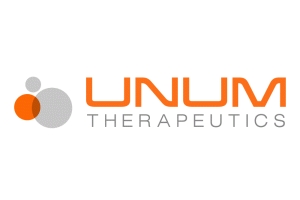 Fidelity Biosciences and Atlas Venture joined efforts to launch a start-up that promises to offer an hybrid approach to the market, called Unum Therapeutics and based on Cambridge, Massachusetts.
Fidelity Biosciences and Atlas Venture joined efforts to launch a start-up that promises to offer an hybrid approach to the market, called Unum Therapeutics and based on Cambridge, Massachusetts.
The start-up will be dedicated to fight cancer, with immunotherapeutic techniques based on the patients’ own immune system.
Fidelity and Atlas were helped by Sanofi BioVentures to conduct a $12 million Series A round for the new biotech. These funds were used to invest in their platform for fighting the life-threatening disease, which is expected to become a novel treatment option for cancer patients. Unum’s platform is based on the supply of tumor-specific antibodies with genetically rewired T cells, in order to develop a targeted treatment for cancer.
“We’ve created Unum to rapidly develop this universal cell therapy platform and to explore its potential in a number of different cancer types,” Charles Wilson, who will lead the work as CEO of Unum, said in a Fidelity press release. “With our Series A funding from Fidelity Biosciences, Atlas Venture, and Sanofi-Genzyme BioVentures, we will drive our lead program into Phase I testing and aim to quickly validate the ACTR approach in the clinic.”
In addition to creating a tailored therapy, the purpose of the new start-up is to deliver, both efficiently and predictably, antibody technology able to fight cancer through immunotherapy. Unum has developed a platform for cancer treatment that is based upon an antibody-coupled T-cell receptor (ACTR). T-cells genetically programmed with ACTR can efficiently attack and kill tumor cells using targeting antibodies.
The companies believes they will be able to target several different types of cancer, due to the versatility of antibody recognition, contrasting with other T cell therapies, such as CAR-Ts and TCRs. In addition, Unum’s approach has also been announced as easier to administer.
The company is now engaging in a new fundraising in order to advance its phase I studies of its ACTR therapy. Unum is planning on releasing early patient data in 2015, and continues to seek for new pharmaceutical partners willing to participate in their antibody T cell platform.

